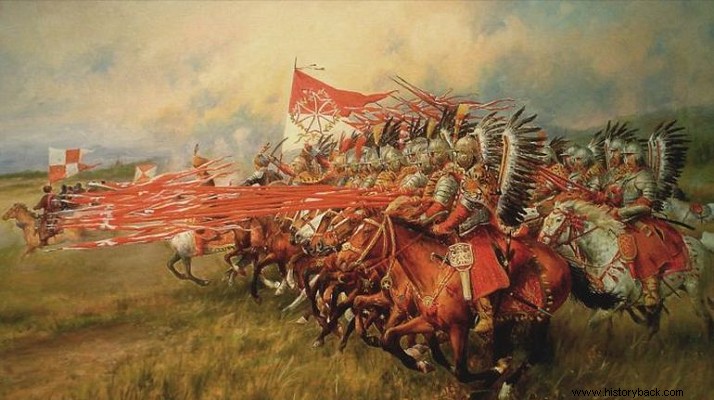
In June 1694 a huge army of Crimean Tatars, allies of the Ottoman Turks, invaded Polish lands with the aim of plundering and pillaging, but also creating a distraction as the main Polish forces fought the Turks. Consequently, the forces that could be deployed against the Tatar invaders were small.
The Tatars invaded with at least 40,000 men – some sources put their number at 70,000. Against them were only 400 Poles, 100 of the famous winged hussars – the best cavalry in the world at that time – and 300 "pancherni", i.e. armored other horsemen. Their leader was Konstantin Zaborovsky.
On June 11, 1694 Polish horsemen spotted a force of 700 Tatars near the village of Khodov which today belongs to Ukraine. At once the Poles rushed forward, not knowing that the Tatars in question were merely the vanguard of the great horde that followed. They chose with momentum and dispersed the Tatars, forcing them to retreat.
But as more and more enemies arrived on the field the heroic Poles were forced to retreat to the village itself . There the horsemen left their horses and with whatever material they found they rudimentarily fortified the houses of the village, turning them into points of support for their defense. The Tartars just recovered from the initial surprise attacked.
However, things did not turn out well for them. Despite continuous, furious, attacks for six whole hours, they achieved nothing against the determined Poles. Still, even when their volleys were finished, the Poles continued to shoot at the enemies, using as bullets the points of the Tatar arrows, whole or broken
Unable to crush the Polish resistance, the Tatars sent compatriots who knew Polish to propose an honorable surrender to the defenders. The answer was strongly reminiscent of Thermopylae... "Come and defeat us if you can"! After this, the Tatars, having lost about 2,000 men, did not persist, believing that the arrival of Polish reinforcements was imminent.
Their hordes retreated east and were soon withdrawn from Polish territory. The Poles had about 100 dead, while all the winged hussars who had not been killed had been wounded. Among them was the brave Zaborowski who died of his wounds three days after the battle. Polish King John Sobieski paid special tribute to those who took part in the battle, living and dead, and strengthened the families of the dead. It is worth noting that the battle is especially honored to this day by the Poles, while it holds the title of one of several "Polish Thermopylae".
